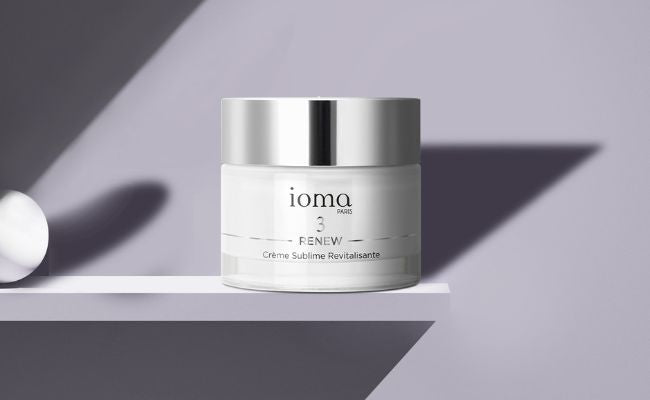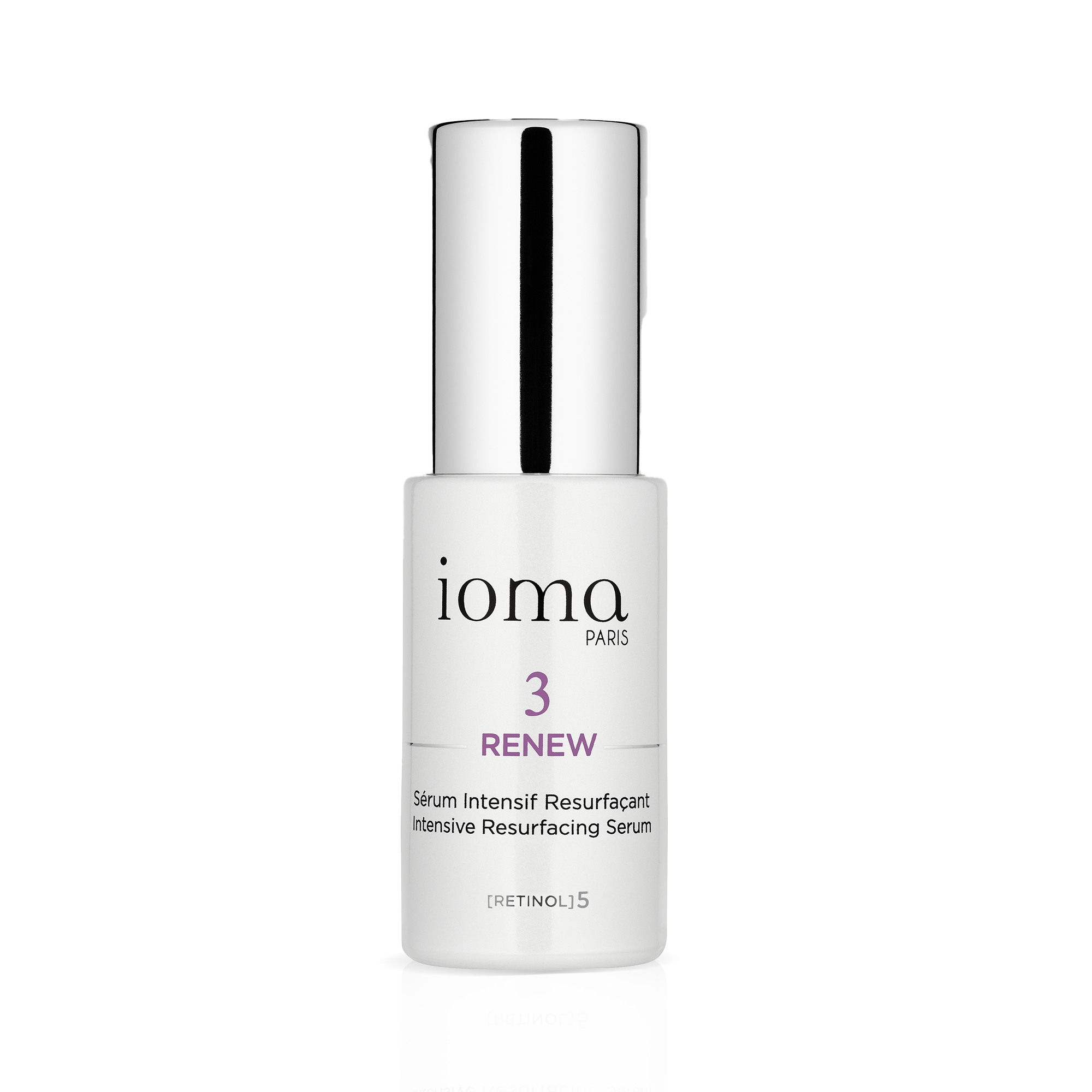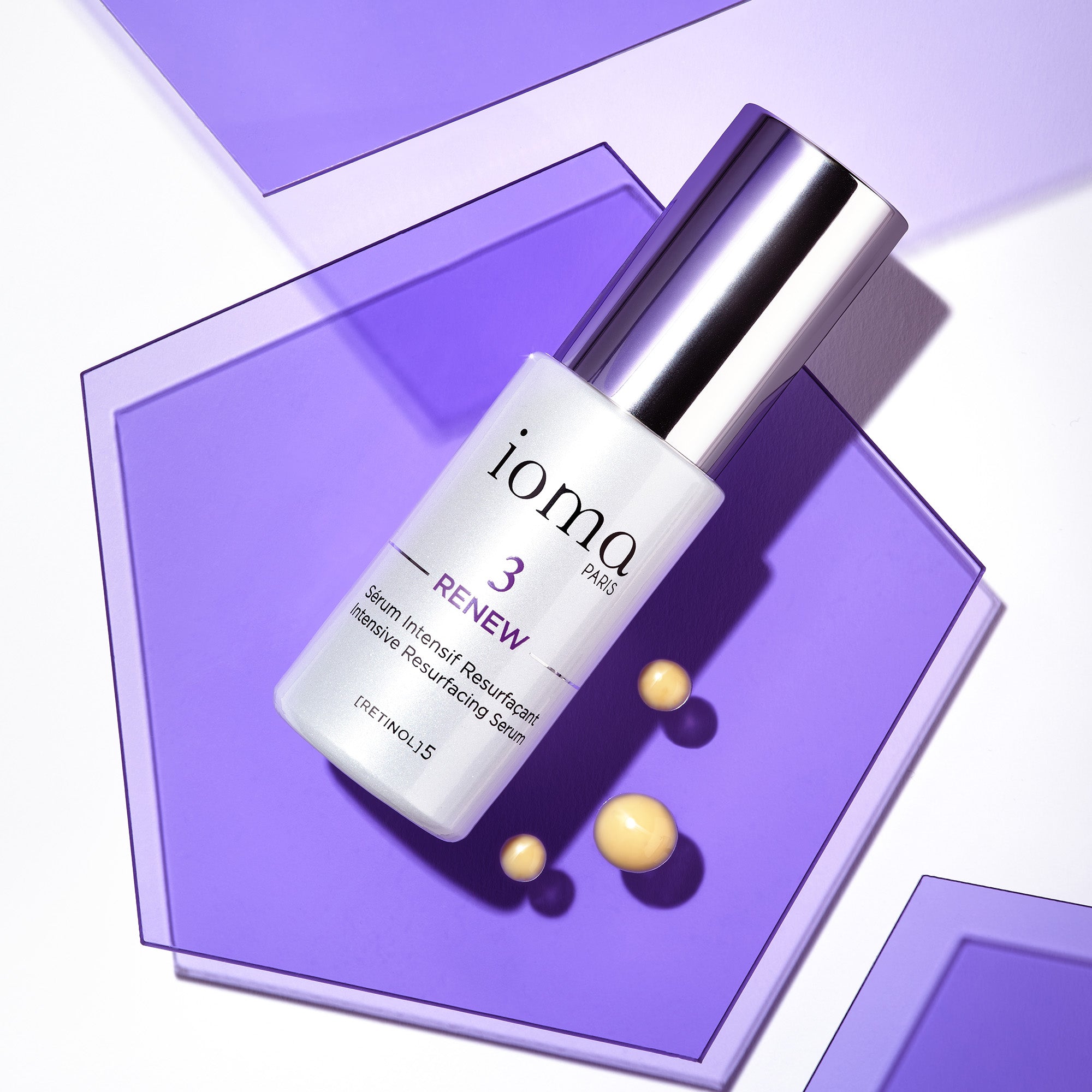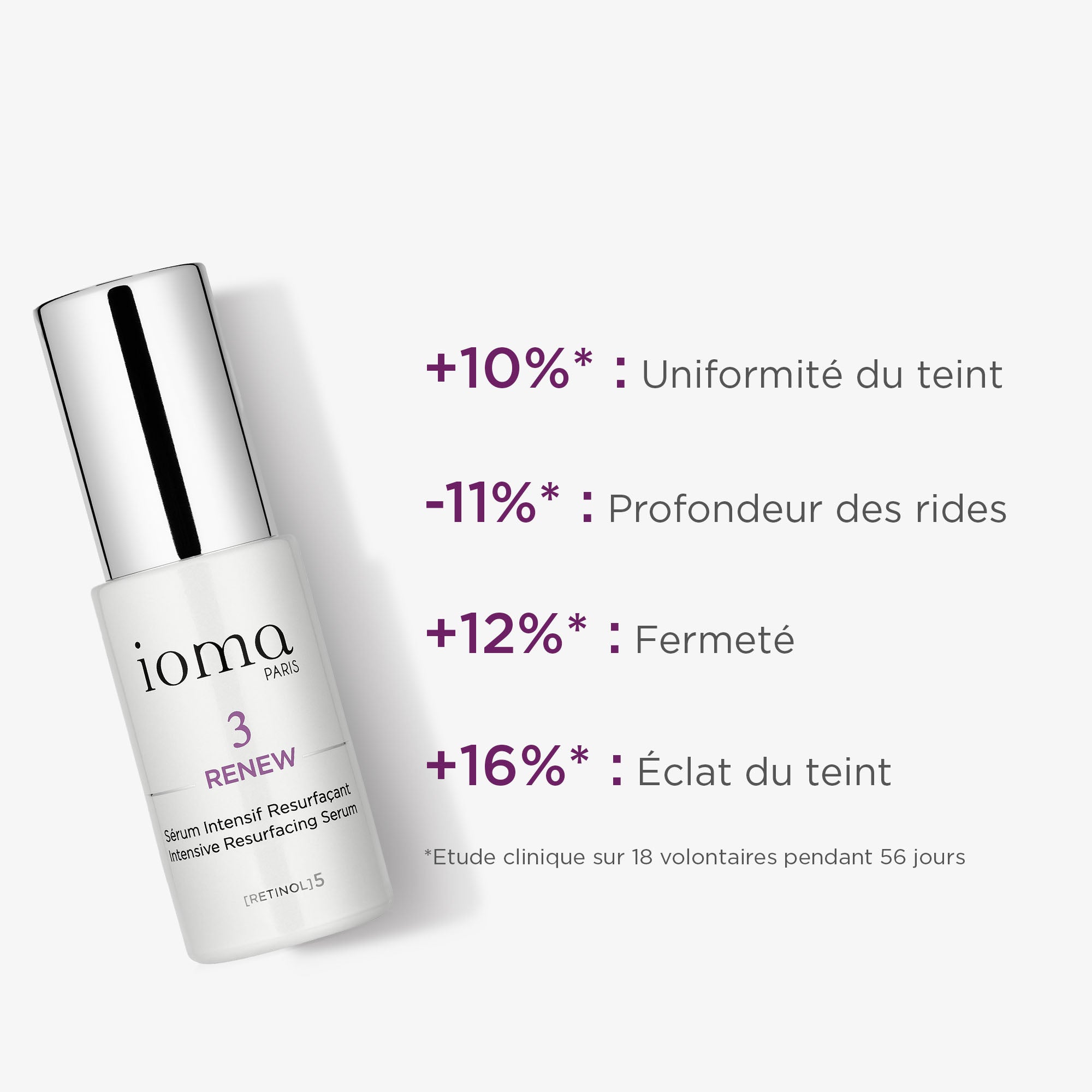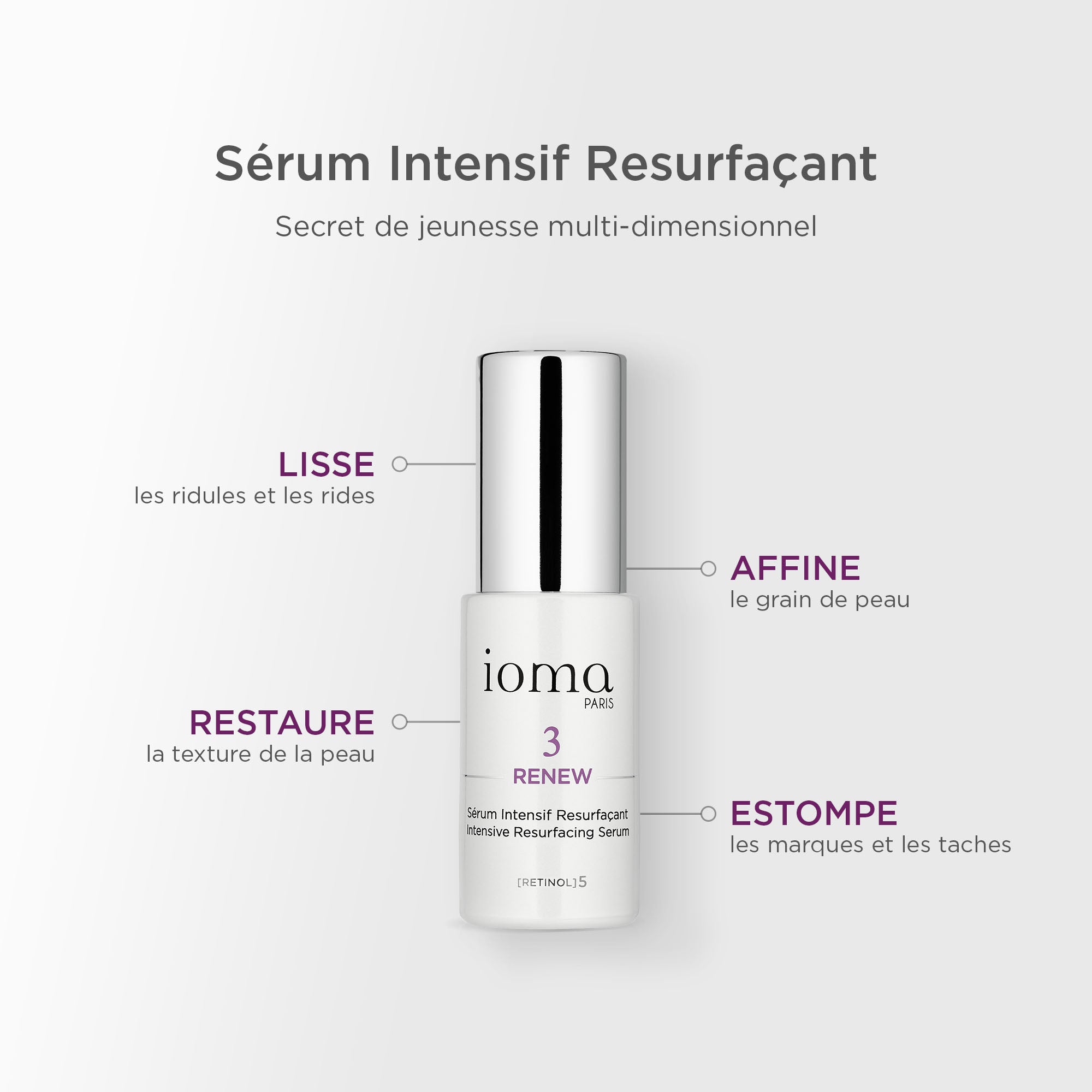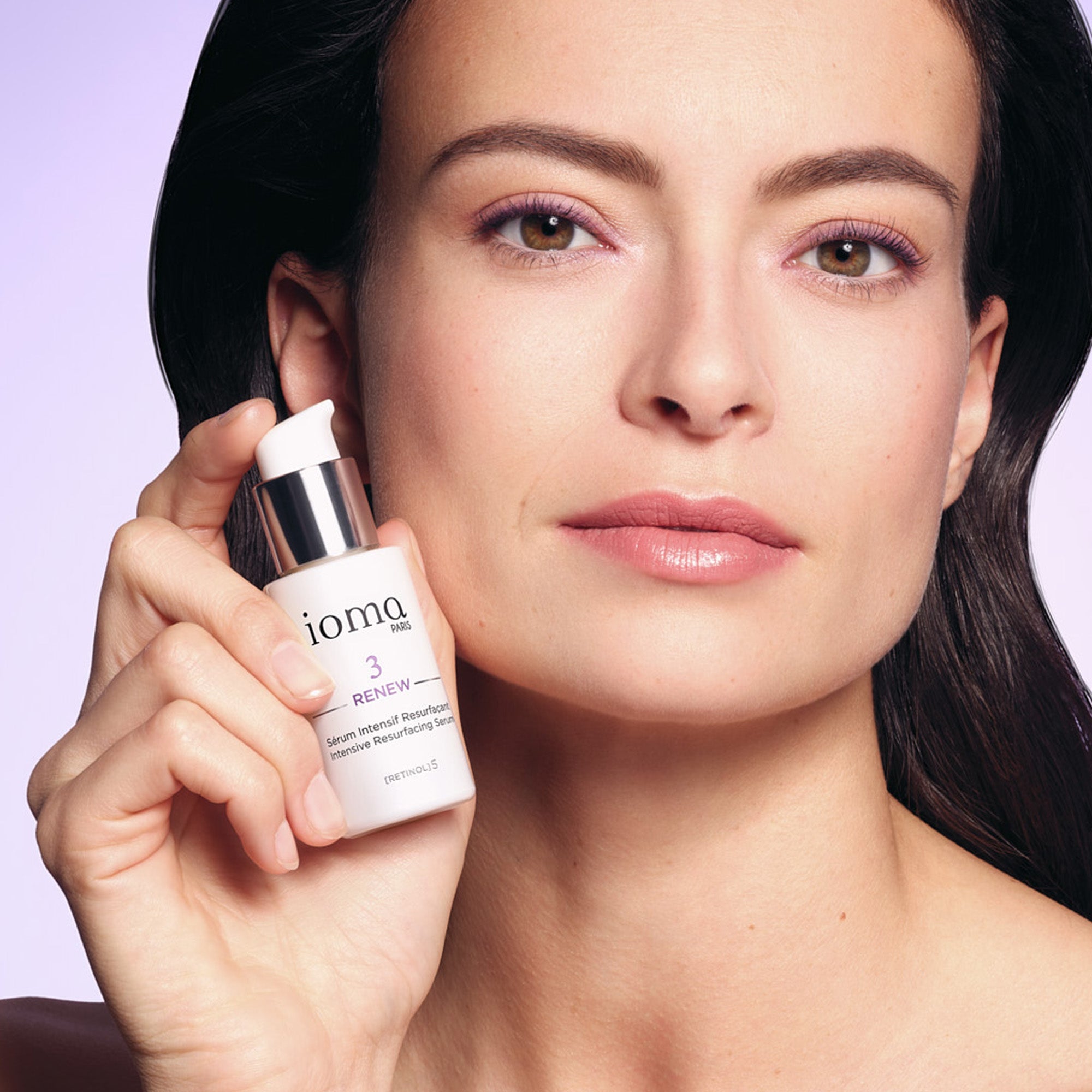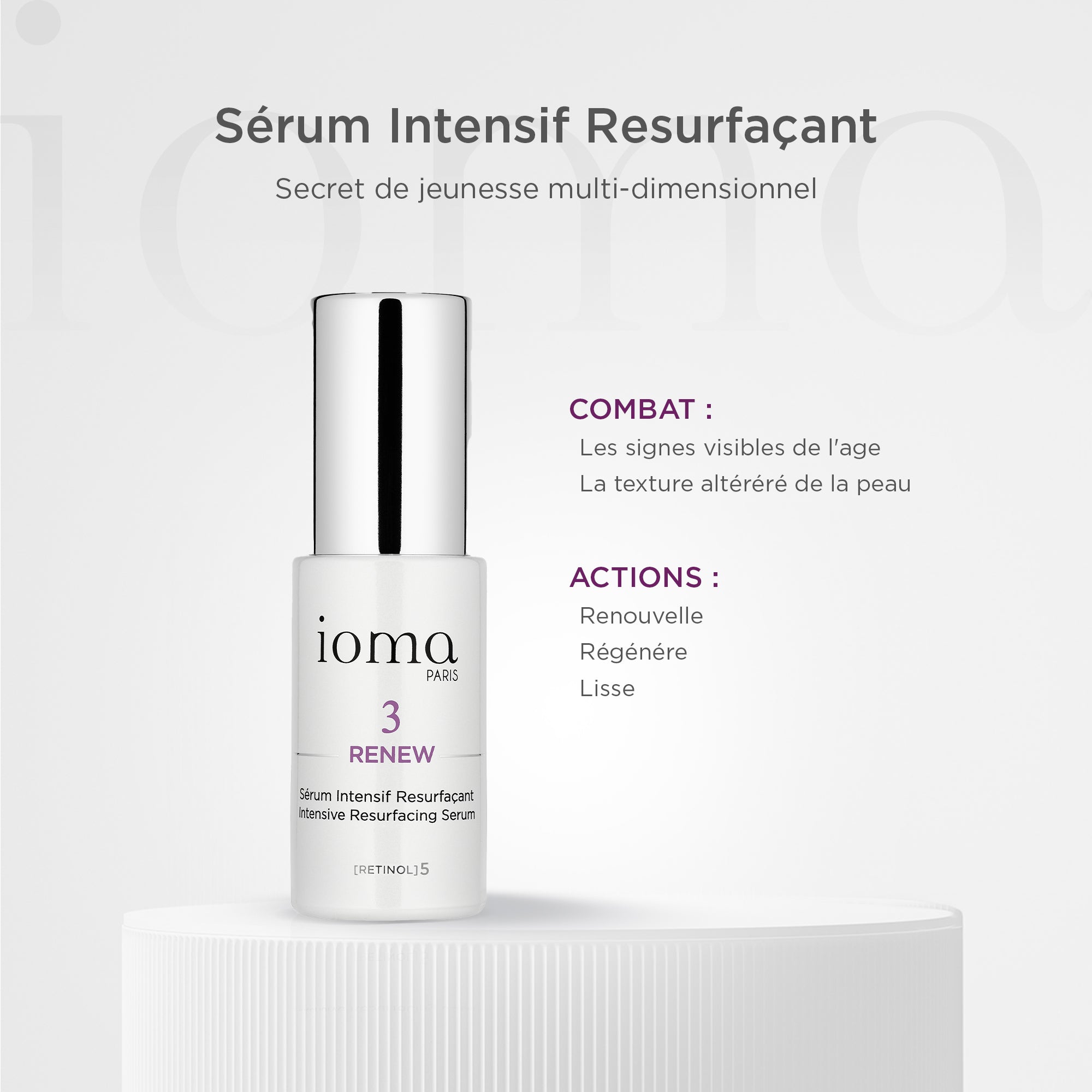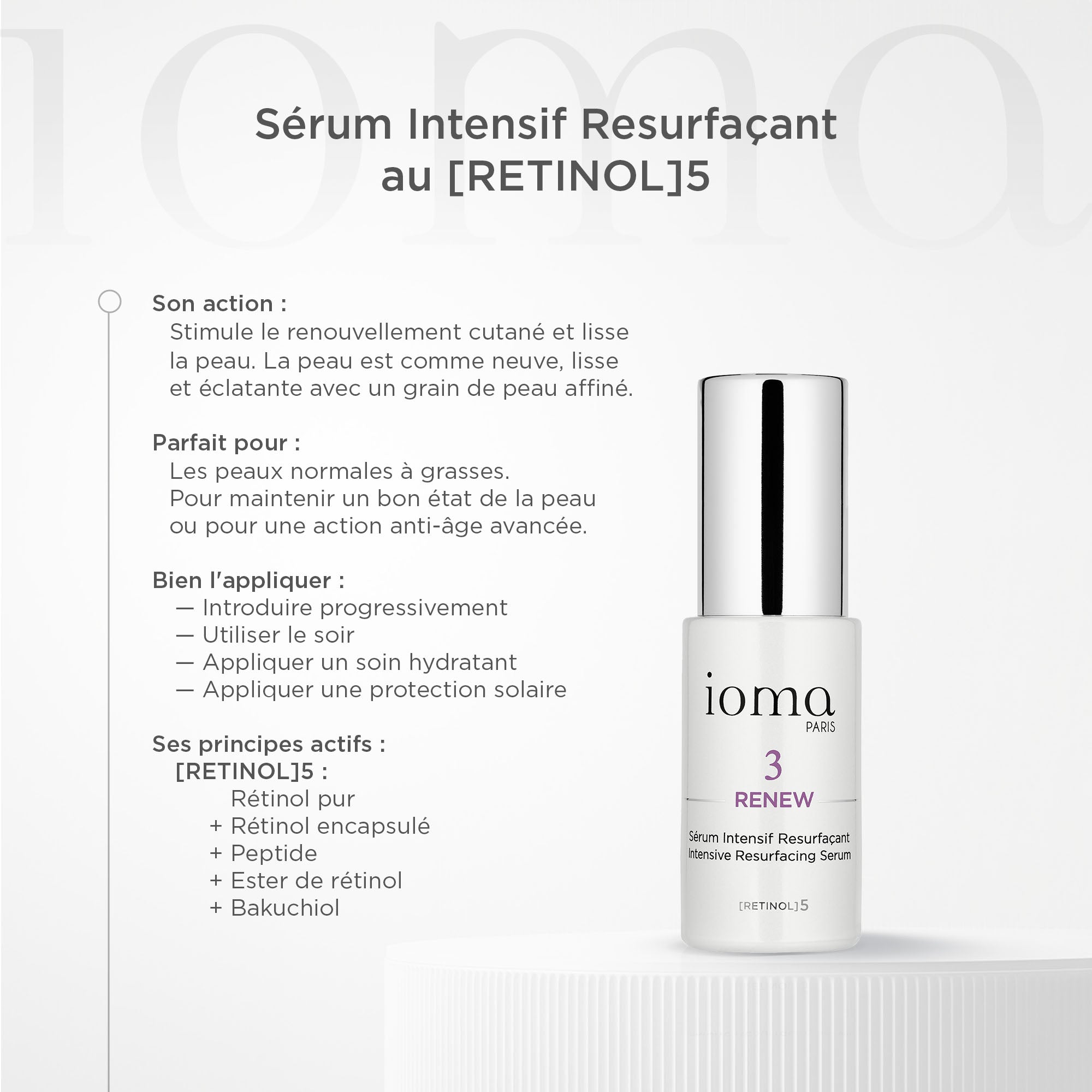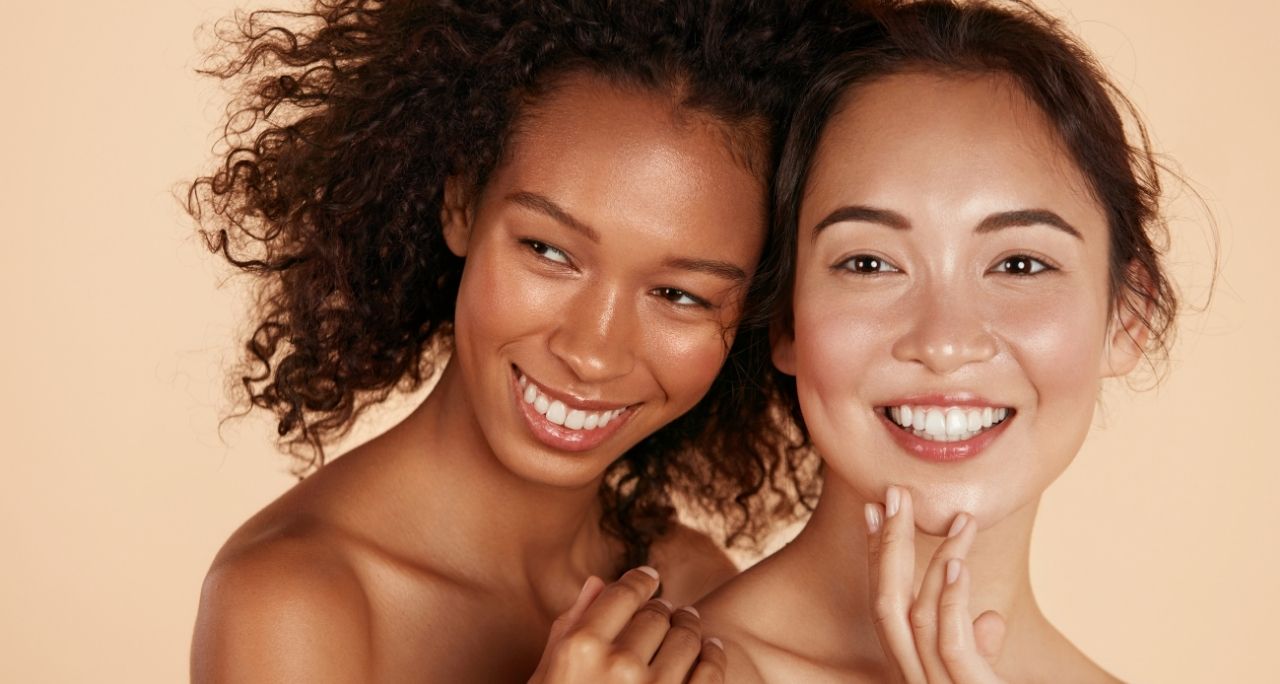
Retinol: the star anti-aging active ingredient in cosmetics, explanations and expert advice
In the world of cosmetics, some active ingredients endure through fashion trends without ever losing their effectiveness. Retinol is one of them. Considered the gold standard in anti-aging, it's acclaimed by dermatologists and skincare enthusiasts alike. But what really makes this ingredient so powerful? How does it work on the skin, and how can you use it safely?
What is retinol?
Retinol is a form of vitamin A, a molecule essential for skin function. It was first used in dermatology to treat acne, before establishing itself as a key anti-aging active ingredient.
Retinol belongs to the large family of retinoids, which includes several derivatives of vitamin A. Among them:
- Retinoic acid (tretinoin): The most potent version, only available by prescription.
- Retinol: the key active ingredient in cosmetics, gentler but still effective.
- Retinol esters (palmitate, acetate): even lighter forms, often used in beginner skincare.
Its success comes from its ability to act on skin aging, complexion radiance and imperfections.
How does retinol work on the skin?
Retinol works at the heart of skin cells. Once applied, it gradually transforms into retinoic acid, its active form. This process explains both its effectiveness and its relative gentleness compared to dermatological treatments.
Its main mechanisms of action:
- Stimulates cell renewal: Retinol accelerates desquamation and promotes the elimination of dead cells. The result: smoother, more even skin.
- Activation of collagen and elastin production: two proteins essential for skin firmness and elasticity.
- Melanin regulation: it acts on hyperpigmentation, reducing dark spots and uneven skin tone.
- Action on acne: by unclogging pores and regulating sebum, it limits the appearance of pimples and blackheads.
The benefits of retinol
The effects of retinol are supported by numerous clinical studies. When used regularly, it allows:
- To visibly reduce wrinkles and fine lines.
- To improve skin firmness and elasticity.
- To even out the complexion and restore radiance.
- To reduce pigment spots linked to the sun or age.
- To smooth skin texture and refine pores.
- To limit certain forms of mild to moderate acne.
- It is this versatility that explains why retinol is considered the benchmark anti-aging active ingredient.
What are the possible side effects?
Like any powerful active ingredient, retinol can cause side effects, especially during the first few uses:
- Redness and tingling sensations.
- Dryness and flaking.
- Increased sensitivity to the sun.
These reactions are normal and generally temporary: they reflect the skin's adaptation. However, improper use can permanently weaken the skin barrier. Hence the importance of following certain rules.
How to use retinol correctly?
The effectiveness of retinol depends not only on its concentration, but also on how it is introduced into the skincare routine.
1. At what age should I start?
There is no hard and fast rule. In general:
- From 25-30 years old as a preventative measure (mild signs, shine).
- After 35-40 years in correction (wrinkles, spots, loss of firmness).
2. How often should I apply it?
- Start with 1 to 2 times a week.
- Gradually increase to 3 or 4 times per week as tolerated.
3. What precautions should be taken?
- Always apply retinol at night, as it is photosensitive.
- Combine it with a moisturizer rich in soothing agents (hyaluronic acid, ceramides).
- In the morning, systematically apply SPF 30 to 50 sun protection .
4. Which assets should you avoid combining it with?
Certain ingredients may increase irritation if used together:
- Powerful exfoliating acids (AHA, BHA).
- Pure vitamin C (preferably apply in the morning, separately).
What are the alternatives to retinol?
Some skin types remain intolerant, even at low doses. In this case, there are some interesting substitutes:
- Bakuchiol: a plant-based active ingredient nicknamed “retinol-like,” which stimulates collagen without the irritating effects.
- Biomimetic peptides : strengthen firmness and prevent sagging skin.
- Stabilized vitamin C: effective on radiance and prevention of oxidative aging.
These alternatives allow you to benefit from some of the benefits of retinol, with better tolerance.
Conclusion
Retinol remains the benchmark anti-aging active ingredient, supported by solid scientific evidence and visible effectiveness on multiple skin problems: wrinkles, firmness, radiance, pigment spots, imperfections.
While it can cause temporary reactions, gradual introduction and simple precautions are generally enough to ensure it is well tolerated. And for even the most sensitive skin, alternatives exist to achieve comparable results.
Retinol perfectly illustrates what a dermatological active ingredient can bring to cosmetics: a bridge between science and beauty, which transforms the quality of the skin over the long term.

